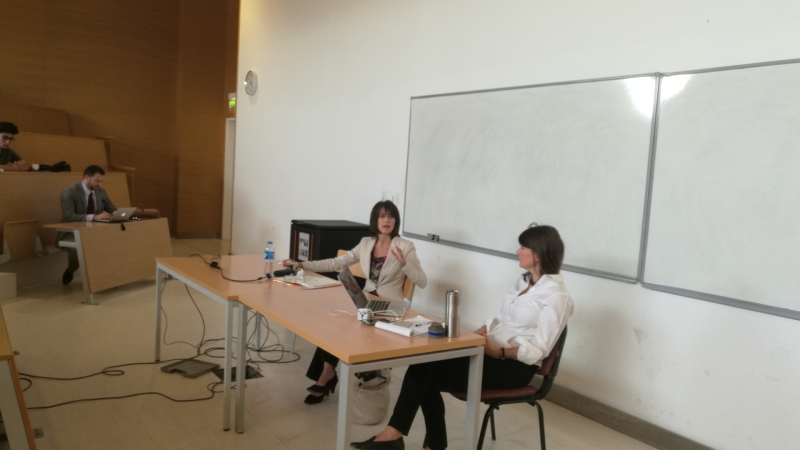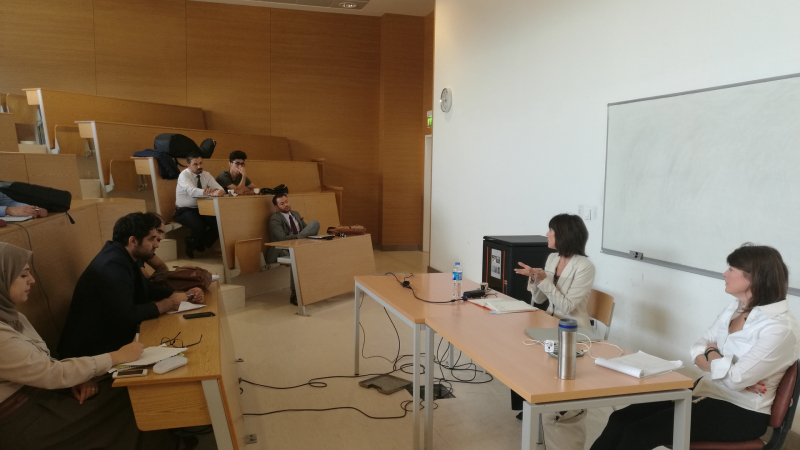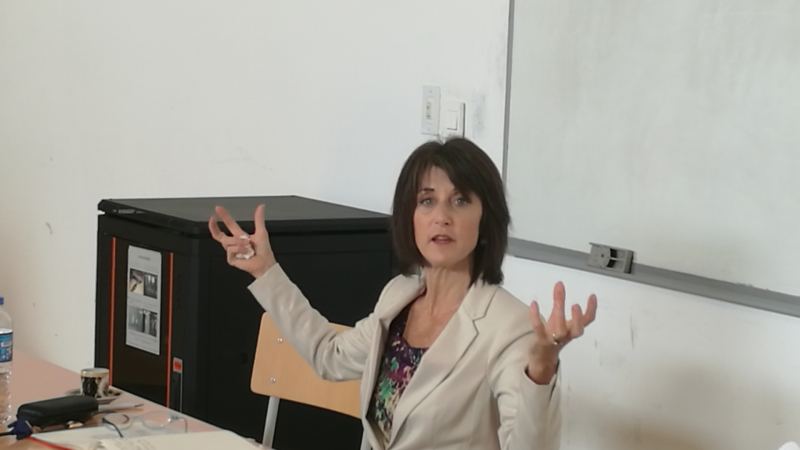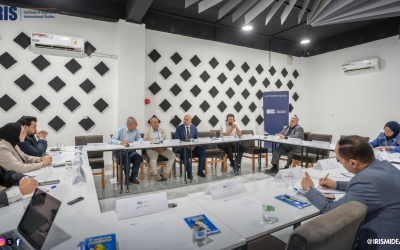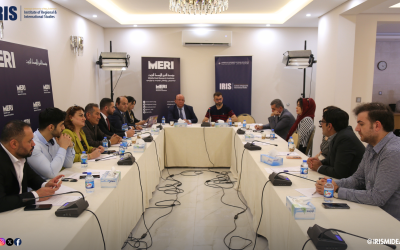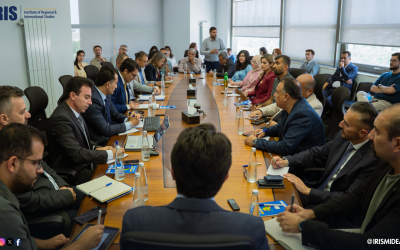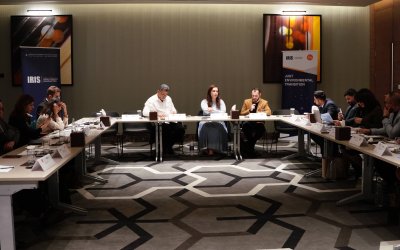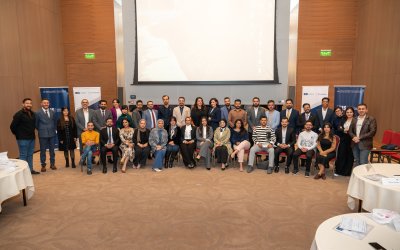On September 27, 2016, Dr. Denise Natali, Distinguished Research Fellow at the Institute for National Strategic Studies (INSS), delivered a lecture on ongoing narrative changes among the American the foreign policy establishment, the different challenges faced by US foreign policy in Iraq, as well as stabilization expectations and strategies for a post-ISIS Iraq.
Specializing on the Middle East, trans-border Kurdish issue, regional energy security, and post-conflict stabilization, Natali dedicated the bulk of her talk to the conceptualization of past, current, and future US foreign policy towards Iraq and the region.
Interventionism
Natali started the lecture by expanding on the concept of “interventionism” from an historical perspective. The fall of the Soviet Union in 1989, she recalled, led to the emergence of new state structures and challenges, which in turn gave rise to “liberal interventionism.” This foreign policy doctrine promoted “boots on the ground” polices and heavy military intervention. In essence, she argued, it was moralistic and focused on “righting the wrongs of the past.” This contrasted with the pre-1989 strategy of the US Department of State, which was characterized mainly by technical assistance.
One of the consequences of more intervention, however,, was embodied by a weakening of state sovereignty, through the encouragement and support of sub-state actors that challenged national units. Indeed, as Natali highlighted, liberal interventionism was rooted in democratic peace theory, which claims that democracies do not fight each other. In that sense, it was perceived as best to establish and support democratic states or sub-state units. She illustrated this claim with the example of the Kurdish uprising of 1991, when the US supported the Kurds in establishing their semi-autonomy region in north of Iraq through the establishment and enforcement of a no-fly zone over north-eastern Iraq. This importantly impacted on Iraqi state sovereignty, and to some extent, territorial integrity.
Then, Natali continued, the September 11, 2001 attacks importantly changed the way the foreign policy establishment conceived foreign intervention. As new dynamics and challenges emerged in the Middle East, the War on Terror became the leading element of US foreign policy. The Bush Administration nonetheless continued to rely on liberal interventionism, and concentrated on effecting regime change in places like Afghanistan and Iraq, most notoriously. The Responsibility to Protect (R2P) principle was also adopted by the United Nations in 2005 as, as Natali argued, a justification for those interventions.
Selective Engagement
With the election of the Obama administration in 2008, Natali contended, American foreign policy started to shift from liberal interventionism towards selective engagement, mainly due to the large economic recession that hit the United States and constrained the government’s spending ability. President Obama started to withdraw US troops from both Iraq and Afghanistan. This new “selective engagement” doctrine, based on the “by, with, and through” philosophy, les the United States to rely more heavily on local partners to achieve its foreign policy goals. In the war against ISIS in Iraq, for instance, the US led Anti-ISIS Coalition regularly collaborates with Iraqi Security Forces (ISF) and Kurdish Peshmerga forces. To be sure, as Natali emphasized, this new foreign policy doctrine is not an isolationist one; intervention remains key,, but it is now selective rather than consistent, and somewhat more subtle in form.
Natali then pointed to one of the doctrine’s problematic assumptions: the one that local partners are pursing the same interests and goals as the United States. This has sparked important tensions within the US government, mainly with regards to the conflicting objectives of keeping “the state” intact –a commitment to the state sovereignty (in Iraq, the “One Iraq” policy) –and intervening in domestic affairs to prop up democratic and friendly regimes.
What’s next for US foreign policy?
As the next US presidential election is fast approaching, it seems difficult to predict US foreign policy orientations towards Syria and Iraq. Natali nonetheless believes that Hilary Clinton, if elected, would probably engage slightly more, having mentioned that she wants to create a safe zone in Syria, for example. Natali further stressed that US foreign policy, under Hilary Clinton, would also continue to focus on counter-terrorism, and perhaps engage more with institution building. More long-term engagement is however unlikely, since it would entail financial commitments that the United States is not in a position to make.
Natali thus posed the following question: “how can regions be stabilized, if we are not going to intervene?” This is indeed the dilemma that the United States and the Anti-ISIS Coalition more broadly are currently faced with; the lack of local institutions capable to engage in stabilization strategies post-ISIS remains a worry.
Further expanding on the aforementioned “by, with, and through” philosophy that forms the basis of the selective engagement doctrine pursed by Obama, Natali argued that neutrality and pragmatism are key to successful stabilization partnerships with local actors.. In this sense, the United States could and should, in her opinion, play the role of neutral broker post-ISIS.
Pre and Post- Mosul Liberation
Discussing the reportedly imminent liberation of Mosul liberation, Natali, concentrated on the role of local political and security partners on the ground (ISF, Peshmerga, Sunni tribes), and claimed that these partners and the political deals that can be struck amongst them will be the main determinants of success in the liberation and post-ISIS stabilization of the city. In the case of Mosul, the question of territorial divide and relative autonomy throughout the Ninewa province will be key.

